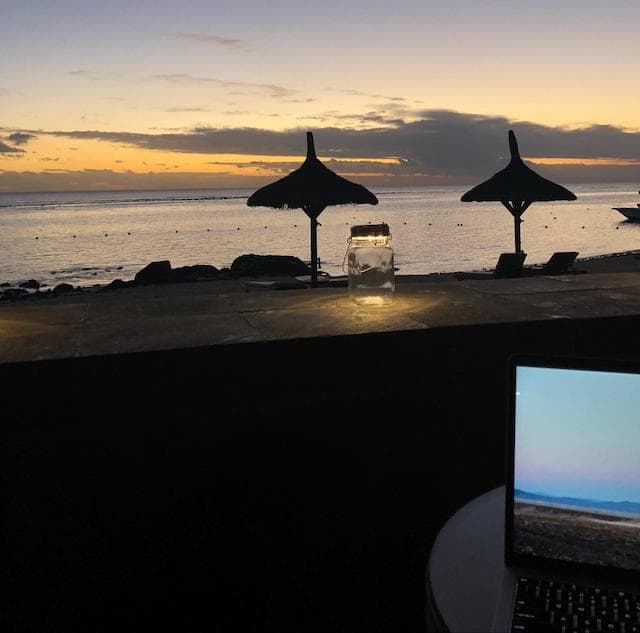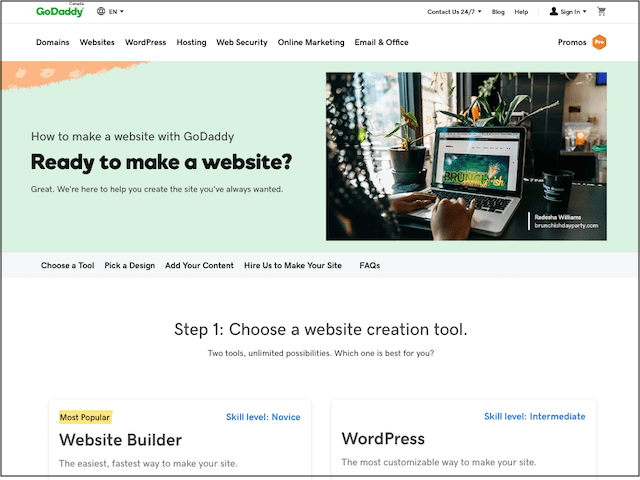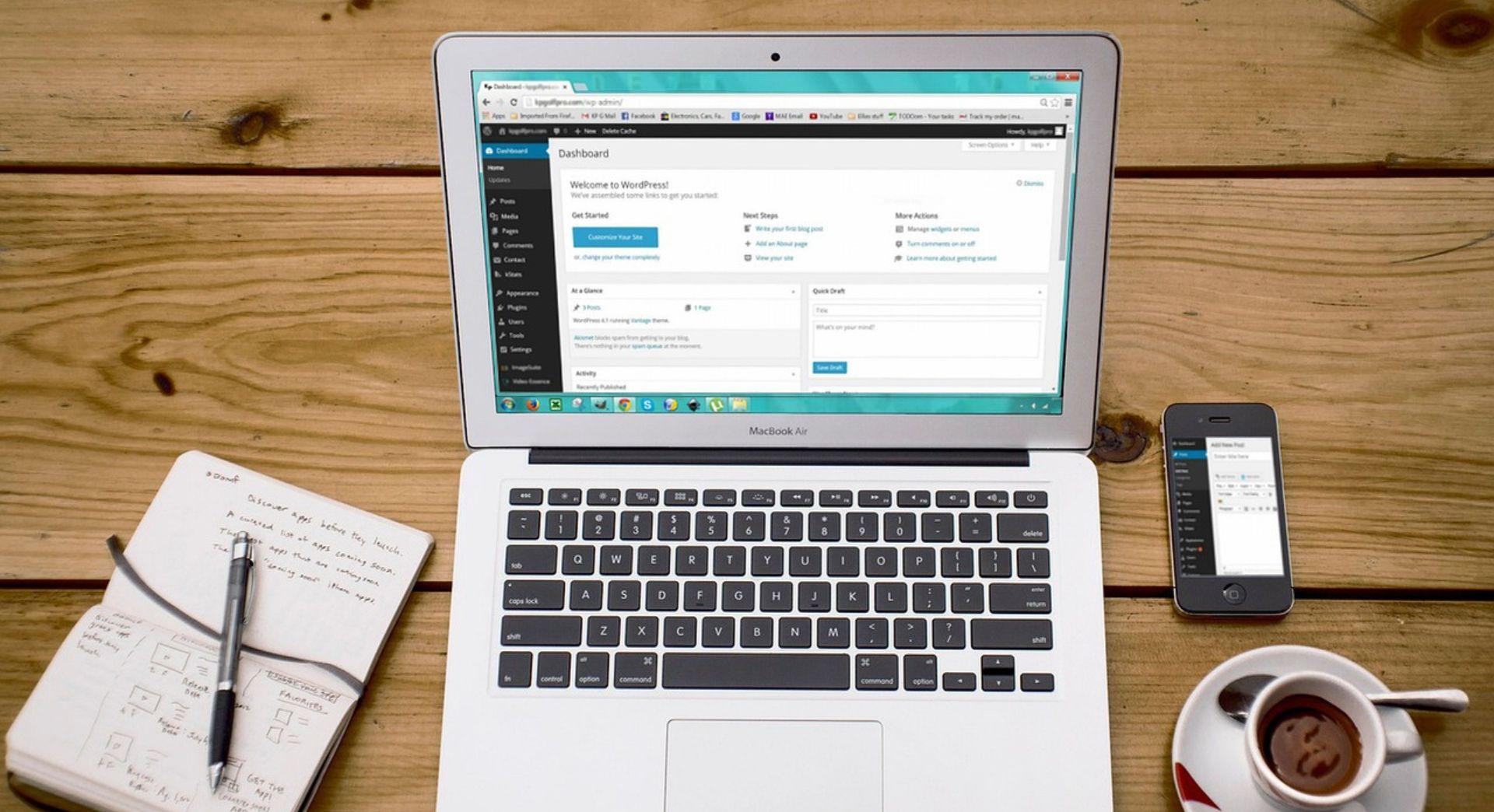Dreaming of trading in your 9-to-5 to work remotely as you travel the world? Maybe it’s time you joined the growing number of digital nomads who are doing just that.
Location-independent workers are bucking tradition and growing in numbers worldwide. In fact, a study by Citrix predicts that 50% of the workforce will be remote by 2020. Sure, many of these people are working from coffee shops or coworking spaces in their own cities. But some are working from the beach in Bali or a cafe in Buenos Aires.
Digital nomad is a relatively new term used to describe these technology-enabled world travelers who work on-location with their smartphones, tablets and laptops.
What you’ll need to be a digital nomad
Making a living wherever the wind takes you sounds awfully enticing. Here’s what it takes to make it work.
- A way to make money.
- The right digital gear.
- A powerful online presence.
Before we dive into how to become a successful nomad, let’s talk about the challenges of this lifestyle.
The truth about the untethered worker

One scroll through the Instagram hashtag #digitalnomad shows hundreds of thousands of feeds belonging to these entrepreneurial explorers:
- Web developers
- Photographers
- Social media influencers
- Virtual assistants
While their Instagram feeds might look exciting — or downright glamourous, depending on who you follow — there’s more than meets the eye to being a digital nomad.
While it’s true that some digital nomads work remotely for a full- or part-time employer, the majority are freelancers or business owners with their own companies and organizations.
As with operating any efficient business, the successful remote entrepreneur needs to have:
- A strategy in place
- The right tools
- A formidable work ethic
- An ability to roll with the tides
All are necessary to overcome the uncertainty and risks that come with the nomadic lifestyle.
Challenges of the mobile lifestyle
Digital nomads have to deal with these challenges:
- Making a steady income
- Bureaucracy issues (visas, taxes, etc.)
- Ever-changing environments and routines
- Unreliable Wi-Fi and phone connections
- Time zone gaps between themselves and their clients
While these challenges can certainly throw a curveball into even the most determined remote worker’s routine, they certainly aren’t stopping the growing number of digital nomads.
Digital nomads tend to have strong mental focus. Many are also pros at digital marketing.
After all, the digital nomad cannot rely on face-to-face connections, so their websites and social profiles must make a positive impression on current and potential clients.
3 things you’ll need
If you’ve weighed the pros and cons and the digital nomad lifestyle seems like the right next move, here’s what you’ll need to have:
1. A way to make money
Unless you have a passive income, you’ll need to be sure you can make a living while you’re on the road. After all, you don’t want to be stuck in a foreign country strapped for cash or credit! Here are just two popular ways to make money.
Freelancing
Many digital nomads will first try to offer their skills as a freelancer through websites like Upwork or Fiverr. Both connect freelance talent with hiring companies and organizations.
If you’re skilled at something that can be done remotely — graphic design, web development, virtual assisting or even accounting — you might find an opportunity one one of these websites.
Be forewarned: there are thousands of other freelancers vying for the same gigs.
In fact, some of these outsourcing sites are SO full of hungry freelancers that they are simply not accepting new ones. So it’s up to you to ensure your online presence and resume help you stand out!
Running an online business
If you’d rather run a profitable business online versus working as a freelancer, there are a ton of options. Depending on your experience and/or financial resources, you could sell products, software, eBooks or educational programs from an online store.
Writers, photographers and videographers can make money from their blogs and podcasts with affiliate advertising.
A few savvy professionals run their own design/web/development agencies, outsourcing the work while keeping a share of the profits for themselves.
While there are many benefits to this approach — the business can run for a period of time without you — most online business owners start out as freelancers first.
2. The right digital gear
So you’ve got the work figured out … now how do you do it from afar?
Most digital nomads embrace the minimalist lifestyle — and for good reason. You don’t want to haul all that stuff around!
But you’ll still need a few digital tools to ensure you can do the work and connect with your clients. Luckily, tech tools are only getting smaller and lighter as technology advances!

Photo: Elle Campbell
To work from anywhere, you’ll need:
- A working laptop or laptop alternative
- A cell phone with international roaming plans
- Chargers
- Hard drives and Cloud space
- Portable Wi-Fi and routers
- GoPro or a camera to document your travels
Plus, you’ll definitely want to consider uploading a full suite of apps to help you streamline your work, productivity, social media marketing and communication.
These will vary depending on what you need them for, but many digital nomads rely on a few of the following:
- Free messaging app like WhatsApp
- Video conferencing program such as Zoom
- Project management tool like Trello
- Payment program like PayPal
- Bookkeeping and time-tracking software such as FreshBooks or QuickBooks
- Business communication tool Slack
These all rely on an Internet connection and you can find one just about anywhere with apps like Free WiFi Spot or Wi-Fi Map.
3. A powerful online presence
While running your own online business or working as a freelancer can seem like a romantic notion, the truth is that you’re up against stiff competition.
Finding steady, reliable work relies on having a solid marketing strategy coupled with a professional website and active social media accounts.
Website
Think of your website as your online business card, brochure and storefront all-in-one. It needs to inspire confidence in your potential clients and customers, so they feel comfortable doing business with you — even from afar.
Whether you’re a novice, intermediate or advanced web designer, you can build your own website with GoDaddy at little cost.
GoDaddy sites include all of the technical elements like:
- Domain name (e.g. TimHortons.com) and matching email address
- Reliable hosting that keeps your website running 24/7
- Built-in search engine optimisation
- Marketing tools like email and social
GoDaddy does the tech work behind the scenes so you can focus on building your business (and maybe catching a sunset or two).
Social media

The power of social media marketing is indisputable and you’ll need to be there in order to build credibility and expand your networks. When used strategically, your social media activity can draw potential clients to your website.
Learn more about social media marketing, including everything from setting up your social media profiles to creating irresistible posts that get shared — in this article.
Decide on your first stop!
So, if you’re ready to cut your location ties and explore the world as you freelance or build your business … now you’ve just to decide where you’re headed!
Just remember that $30,000 a year will sustain a much better lifestyle in a cheaper locale like Bali or Chiang Mai (both popular digital nomad hotspots) than it will in Paris, London or Tokyo.
So grab your passport, and don’t forget to write home!







